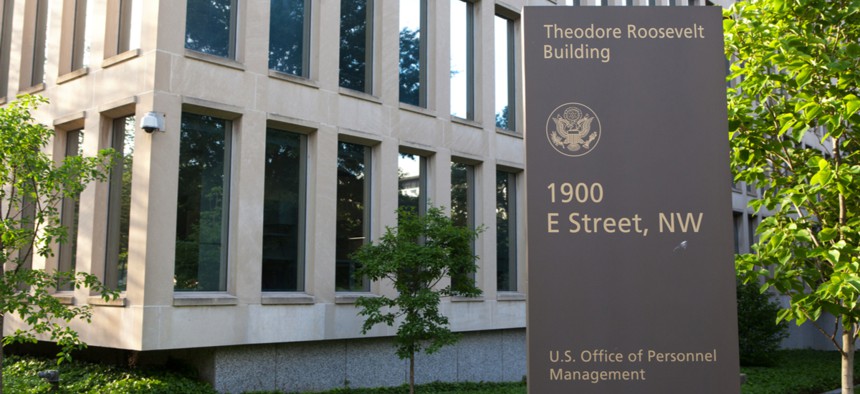Trump Taps Former Labor Board Chairwoman to Lead OPM

Mark Van Scyoc/Shutterstock.com
Dale Cabaniss previously led the Federal Labor Relations Authority and spent more than 20 years overseeing civil service issues in the Senate.
President Trump on Monday announced that he would nominate former Federal Labor Relations Authority Chairwoman Dale Cabaniss to be director of the Office of Personnel Management.
If confirmed, Cabaniss would provide stability to an agency in flux, slated to have much of its work shipped over to the General Services Administration and its policy shop shuttled into the Executive Office of the President. The personnel agency has been headed by acting Director Margaret Weichert since the previous Senate-confirmed director, Jeff Pon, was asked to resign last October in part over his reluctance to implement the White House’s reorganization plan for OPM.
Weichert concurrently serves as deputy director for management at the Office of Management and Budget.
In the mid-1990s, Cabaniss served on the Senate’s Governmental Affairs Committee as counsel for its panel on the civil service. She was first appointed to the FLRA in 1997 by President Clinton as the required nominee from the minority party. In making that nomination, Clinton highlighted Cabaniss’s role in drafting portions of an omnibus spending bill and her work “to secure the passage of legislation to improve the Thrift Savings Plan component of the Federal Employees Retirement System.” At a confirmation hearing to become the authority’s chairwoman, the late Sen. Ted Stevens, R-Alaska, who served as Cabaniss’s boss while she was a Senate staffer, praised her for her vast experience on federal workforce issues.
“Dale has been an advocate of an effective bipartisan voice on civil service on public and private sector labor issues,” Stevens said. “[FLRA] disputes are often contentious, and Dale has earned the reputation as a fair and balanced arbitrator.”
In that hearing, Cabaniss emphasized the importance of federal employee unions and agencies working together and maintaining open lines of communication. She said FLRA played an important role in training managers to resolve issues before they reach the litigation phase. She said whenever cases came before her, she wanted to ensure all parties "understand their rights" and the authority makes "well-reasoned decisions." She added that in addition to a resolution on any one issue, she hoped both sides "can take something from those decisions that can help guide their future behavior."
Cabaniss was approved as FLRA chairwoman unanimously.
After leaving the FLRA, she returned to the Senate, where she served from 2010 until 2018 as Republican staff director at the Appropriations Committee’s subcommittee on financial services and general government, which was most recently chaired by Sen. James Lankford, R-Okla. In that capacity, Lankford helped lead the push to include a 1.9 percent pay raise in a fiscal 2019 spending bill.
Cabaniss represents the fifth person to be linked to leading OPM since Trump took office. His first nominee, George Nesterczuk, withdrew his name from consideration following fierce opposition from federal employee unions over his role in the ill-fated National Security Personnel System, an effort to implement performance-based pay at the Defense Department. And Kathleen McGettigan served as acting director from January 2017 until Pon’s confirmation last March.
NEXT STORY: Report: States slow to retire old voting tech





